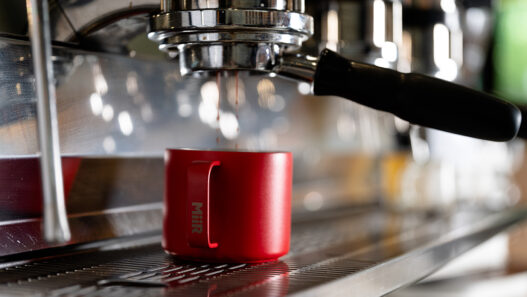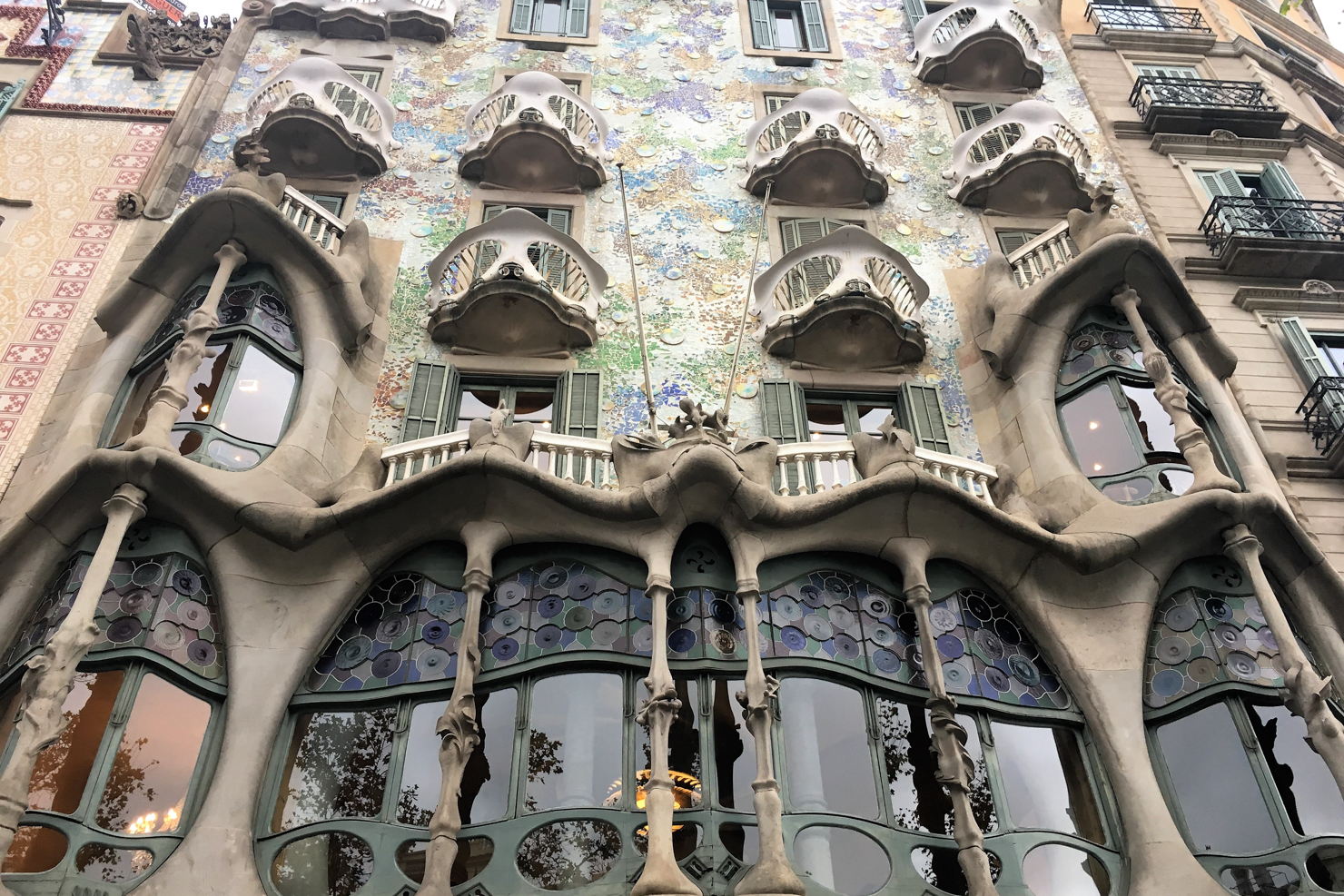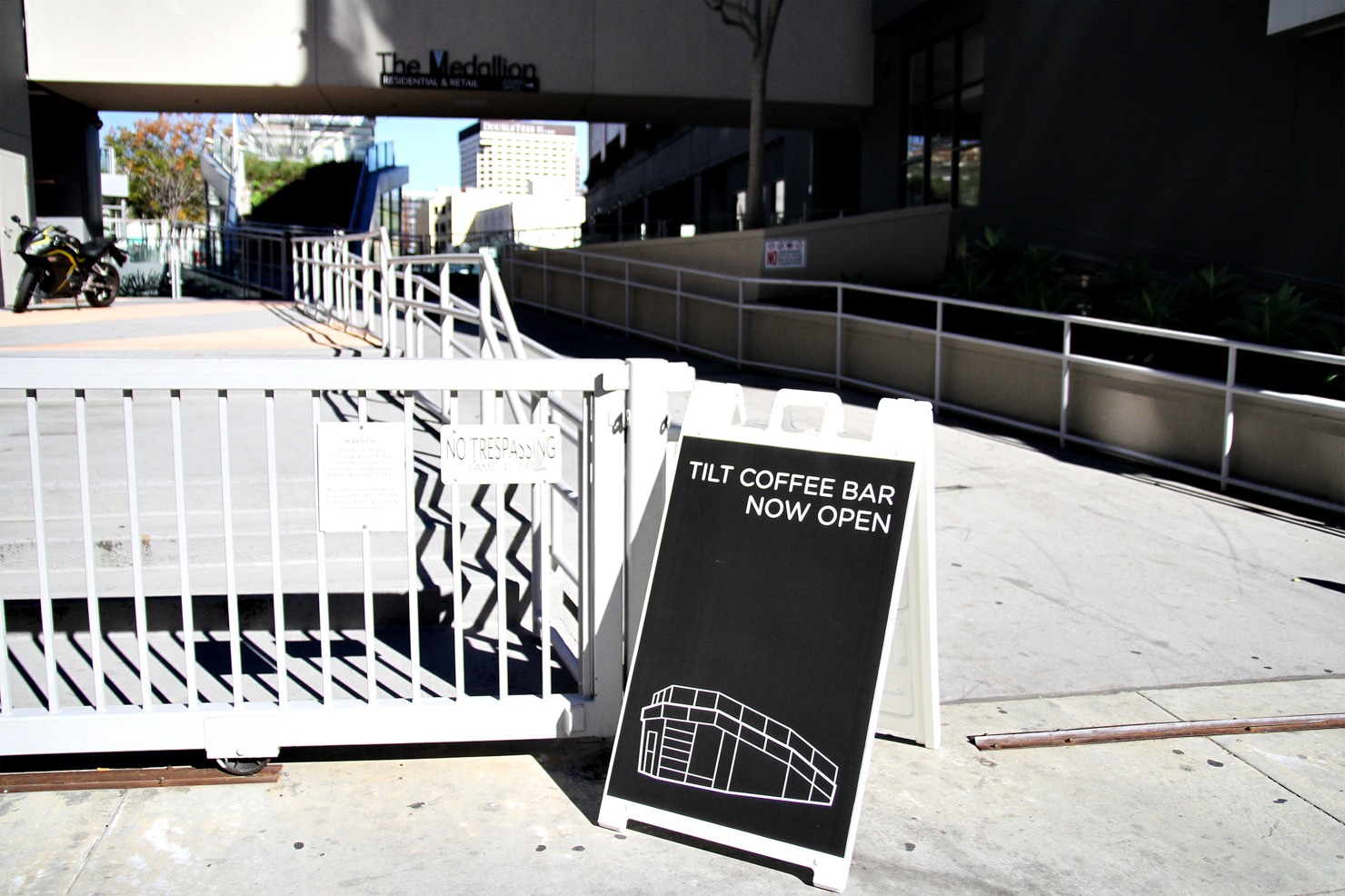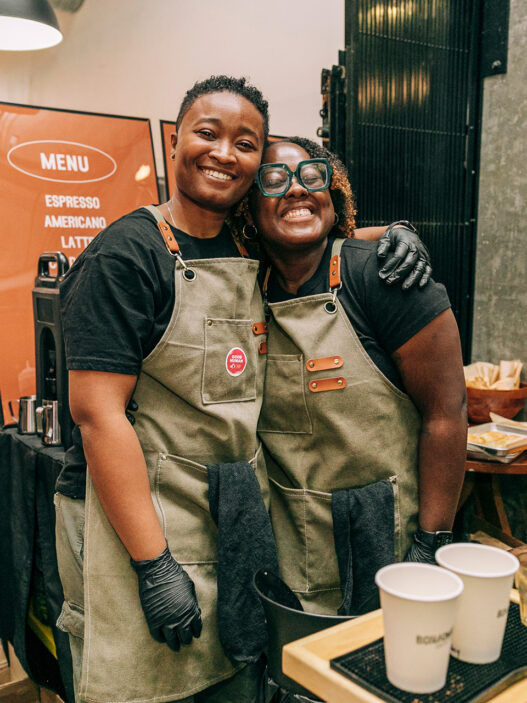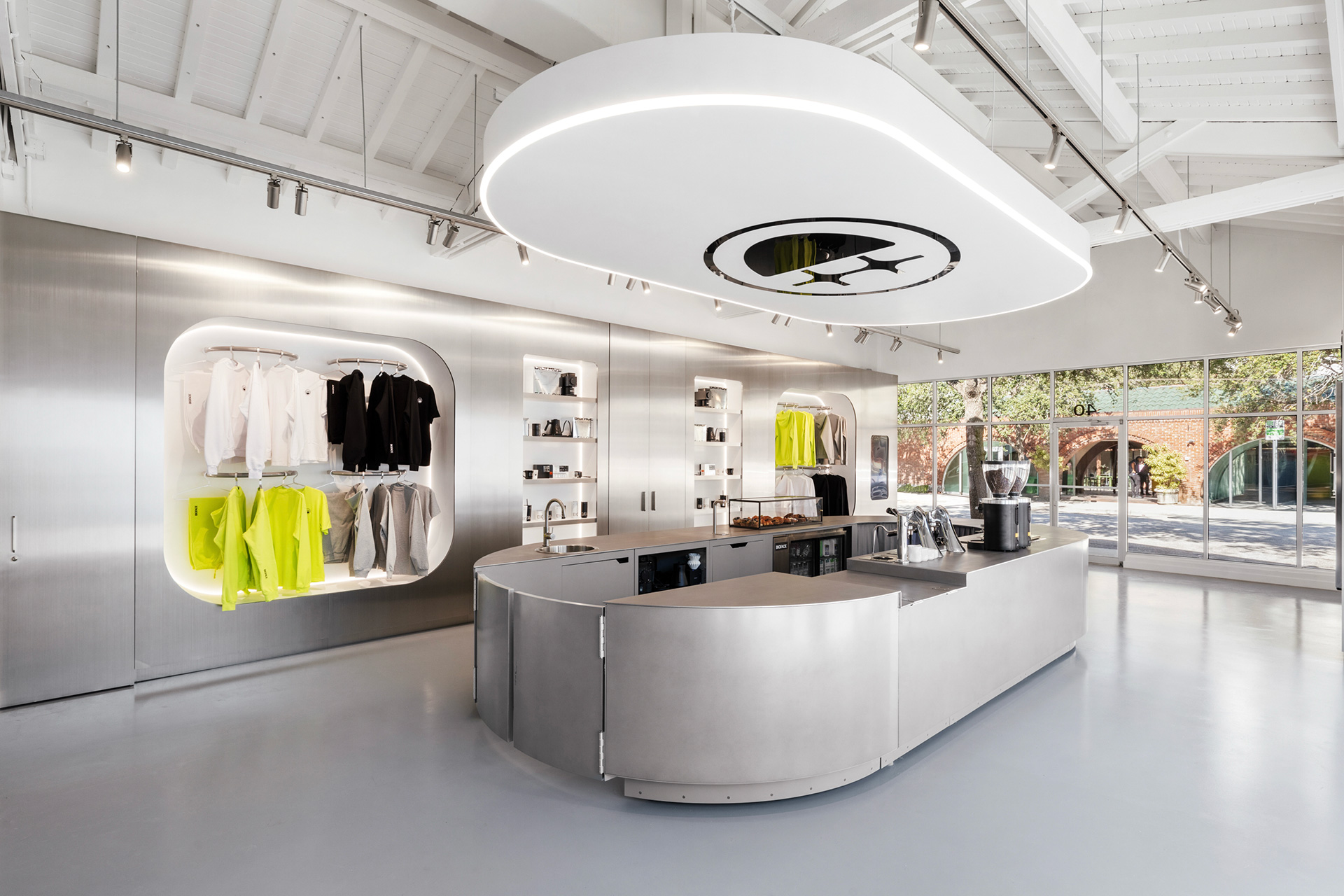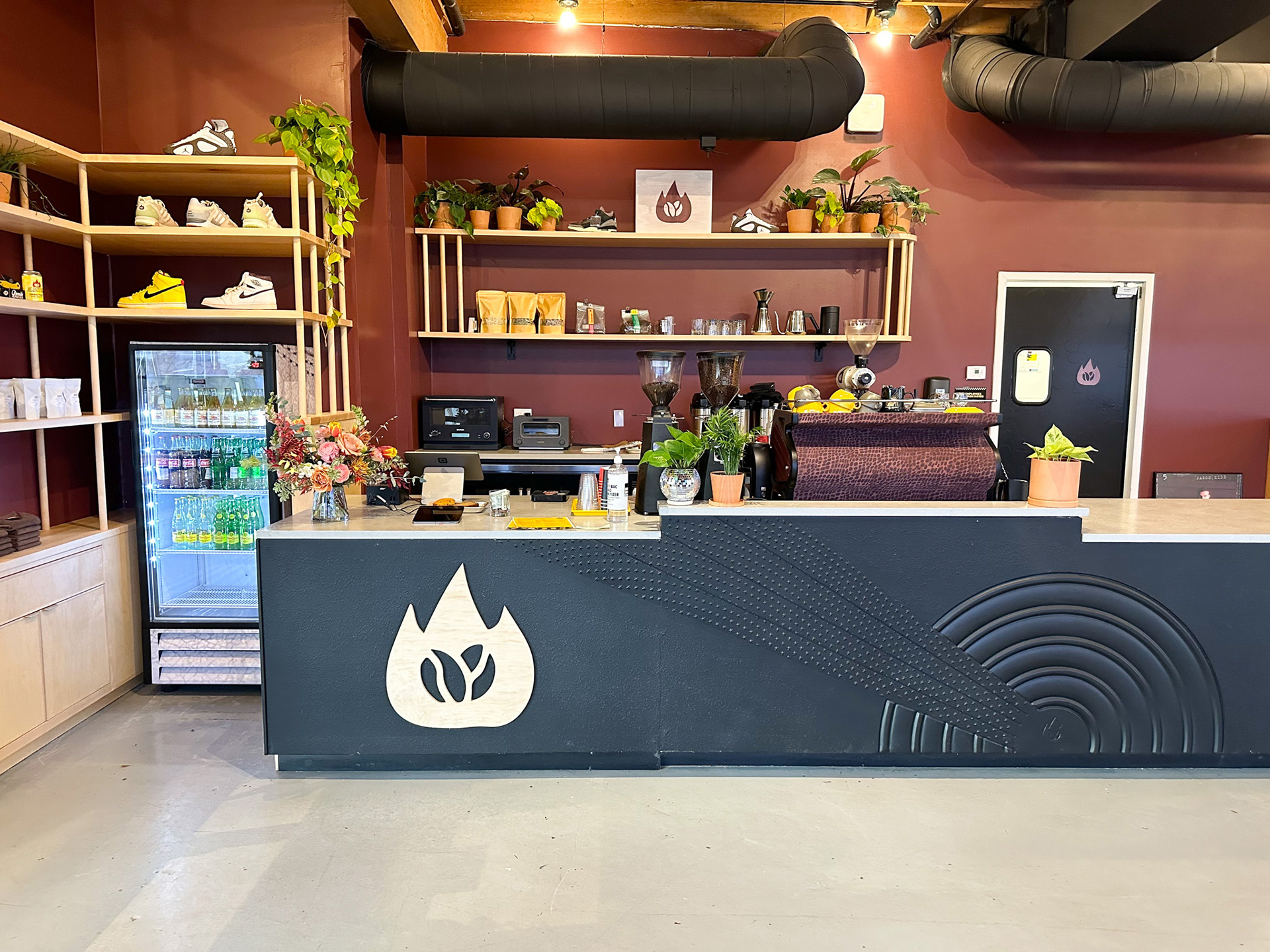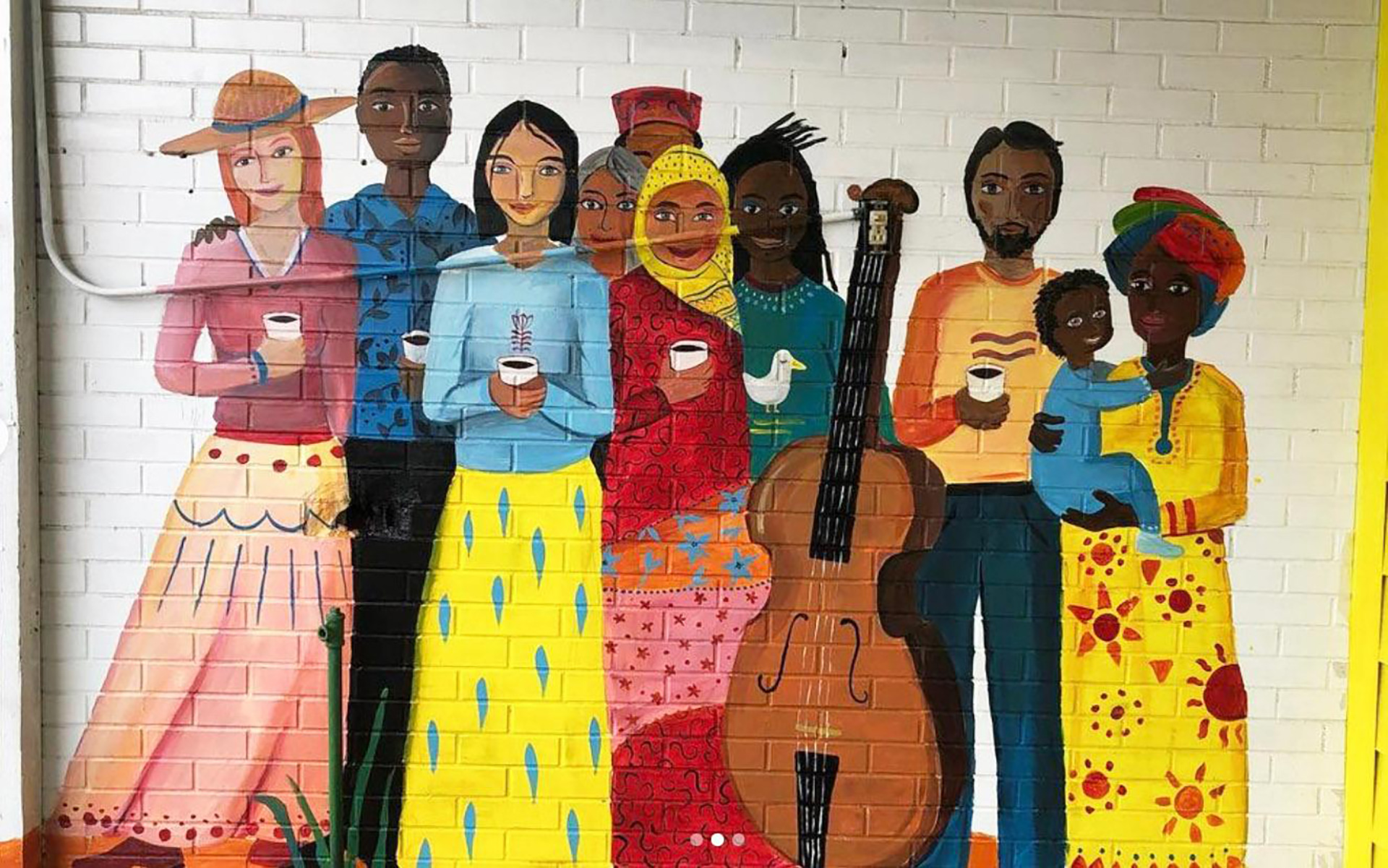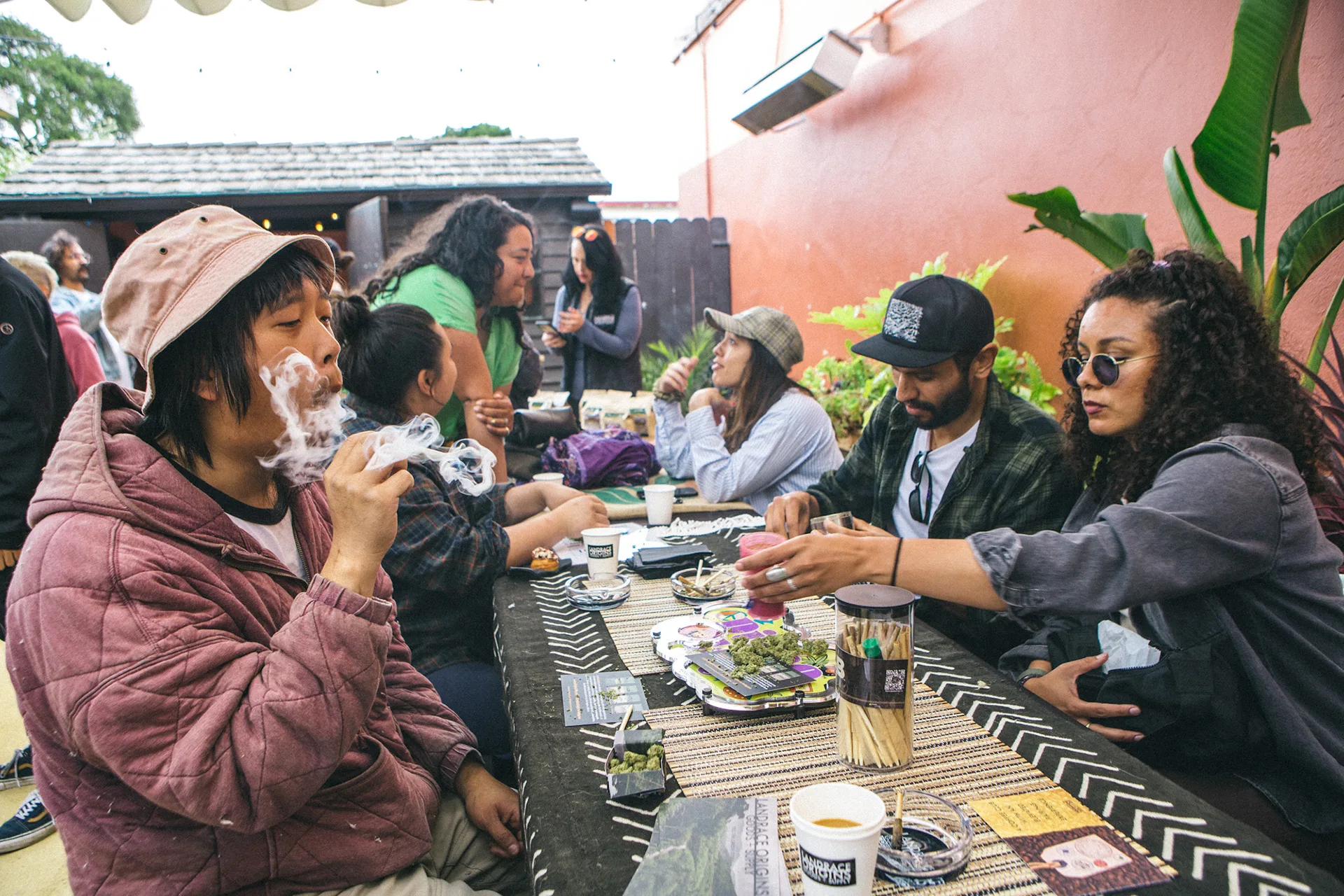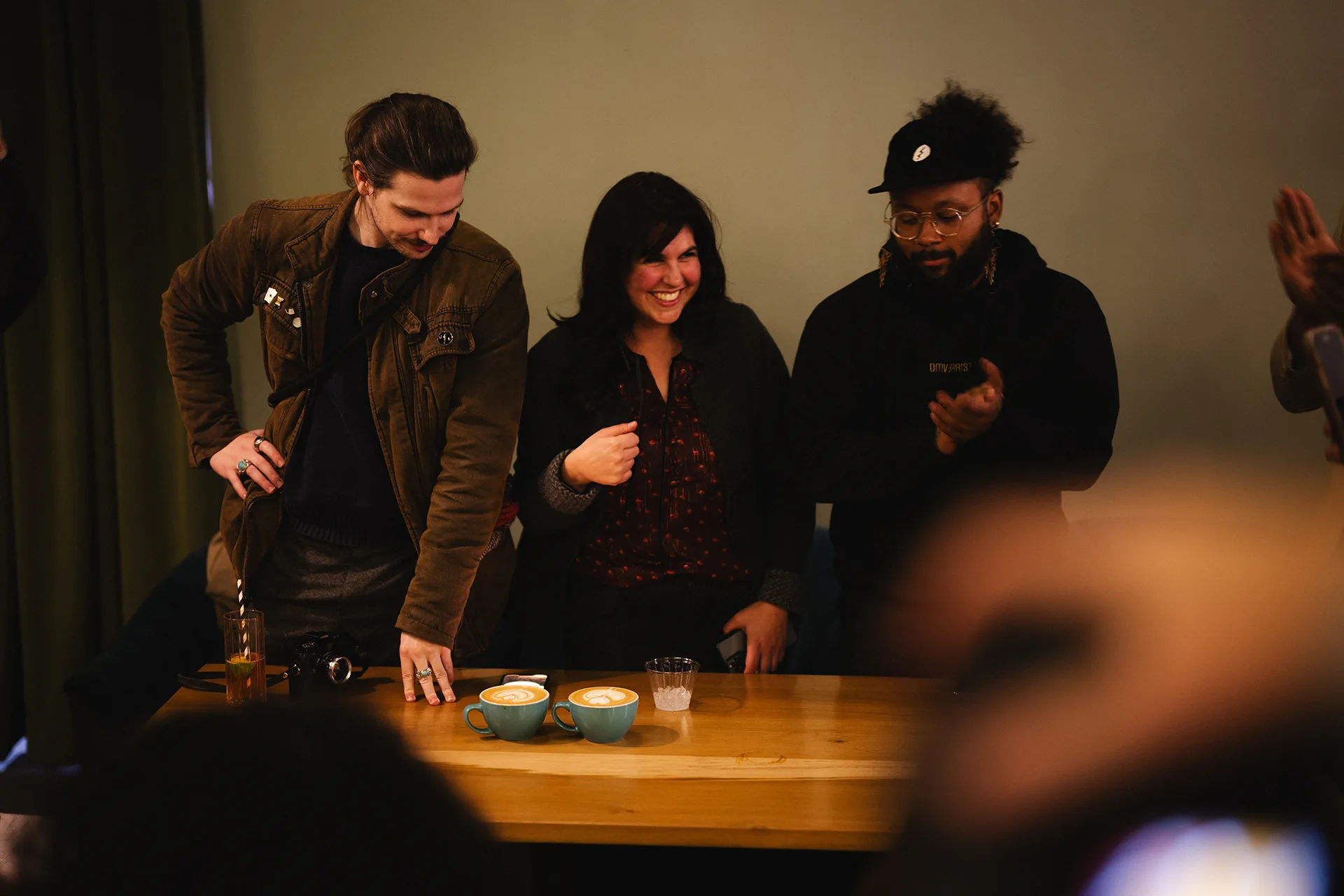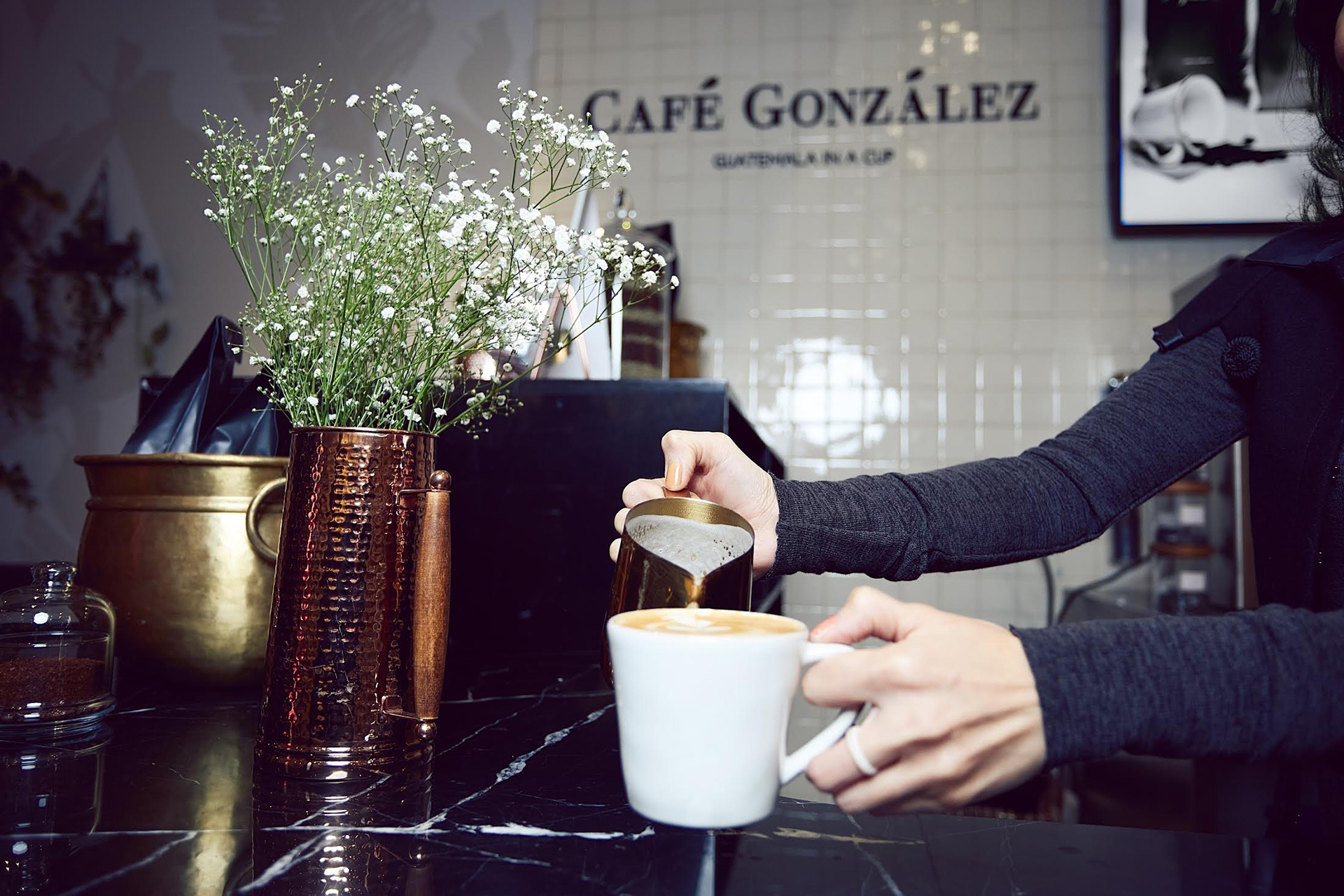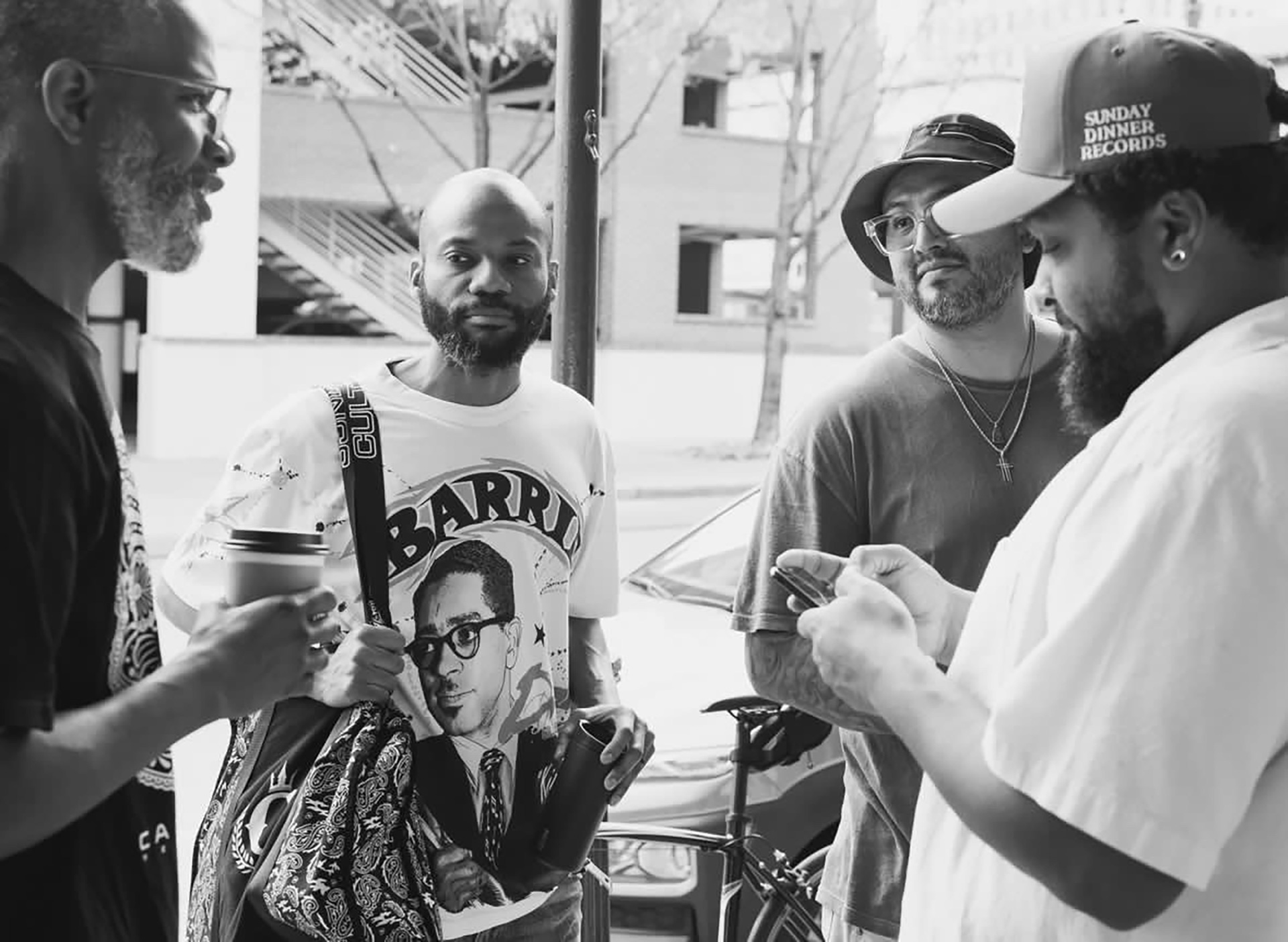A poc a poc, meaning “little by little,” is one of Barcelona’s favorite Catalan expressions, and it perfectly characterizes the way the specialty coffee scene is slowly emerging in the Mediterranean city. Known for world-class gastronomy, unique art, and an exceptional quality of life, Barcelona leaves few things to be desired. Yet, until very recently, if Barcelona were to receive low marks in one particular area—good coffee was definitely it.
Indeed, until about two years ago, the specialty coffee lover could count their options on one hand. Today, however, the city seems to finally be catching up with its European counterparts like Berlin and London, as new coffee shops are popping up every few weeks, and events such as the Independent Barcelona Coffee Festival and CoLab: Barcelona are raising Barcelona specialty coffee’s profile nationally and internationally.
The growth is a credit to the hard work of Barcelona’s coffee community—a small group of highly dedicated (sometimes obsessed) professionals, who have spent years working abroad in the coffee industry, have won Spanish and international barista/roasting championships, or who grew up immersed in their family’s coffee businesses. And while appreciation for specialty coffee is increasing, Barcelona is still a city where it pays to do your coffee homework, as the average cafe will still serve you a cheap cup of burnt robusta beans. But as bad as the bad coffee can be, the good coffee is equally remarkable. If you pay a visit to the places on this list, expect thoughtfully roasted coffees, talented baristas who take their craft seriously, and a community of coffee professionals ready to engage with you and the rest of the coffee world.
Cafés El Magnifico
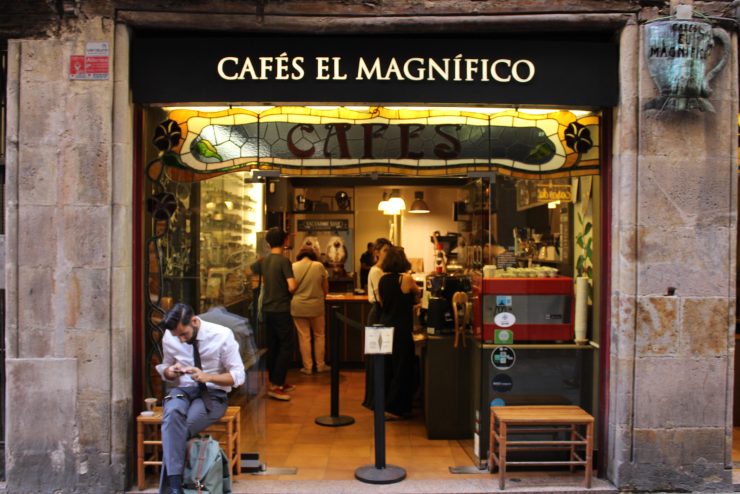
Your first destination in Barcelona should be Cafés El Magnifico, which you’ll find amidst the charming Gothic backstreets and boutiques of the Born neighborhood. To fully understand anything in Barcelona, you need to place it in historical context, and there’s no better place to understand the history of Spanish coffee than at El Magnifico. Pioneers of the specialty coffee industry in Barcelona, El Magnifico is a third-generation family business that has seen the Spanish coffee industry through the Spanish Civil War, the dictatorship, national financial crises, and more.
“My father was born on this street,” El Magnifico’s owner Salvador Sans, tells me as we walk from their small main shop in the Born to their business office across the street, where the majority of their coffee is now roasted in the 30-kilogram roaster that allows them to meet growing national demand. Their success is due to their focus on the science and art of quality coffee that quietly speaks for itself and provides an accessible pleasure to the average Barcelonian.
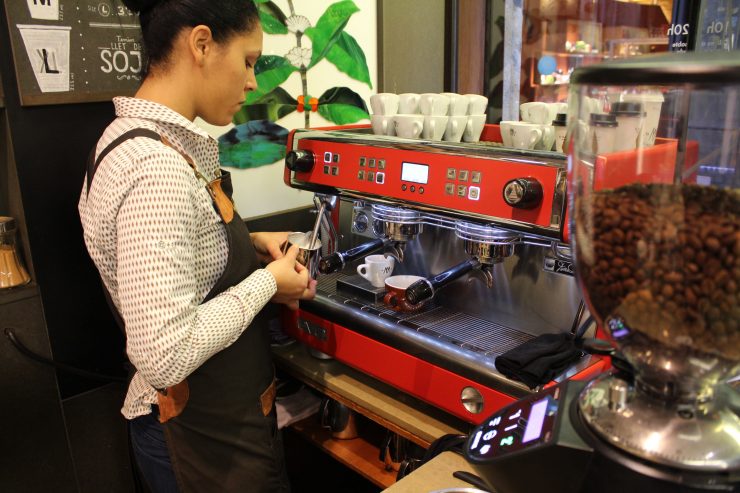
Magnifico boasts a charming location, an excellent selection of coffees from around the world, and a very knowledgeable staff to advise you on each of the coffees they sell. However, like many coffee venues in Barcelona, what they do not have (at their flagship cafe, anyway) is seating. If you’d like to enjoy your coffee and linger for a while, you should plan a visit on a weekend when their sister store and education space, El Mag, is open just around the corner in a stylish boutique space.
At either store, you can enjoy a variety of espresso-based drinks or filter-based methods as well as Cafè Fred, a local cold brew made from Magnifico’s coffee. If you have the option, Sans’ favorites include the Kenya Nyeri, Colombia Colamina, or the Chelbesa from Ethiopia.
Satan’s Coffee Corner
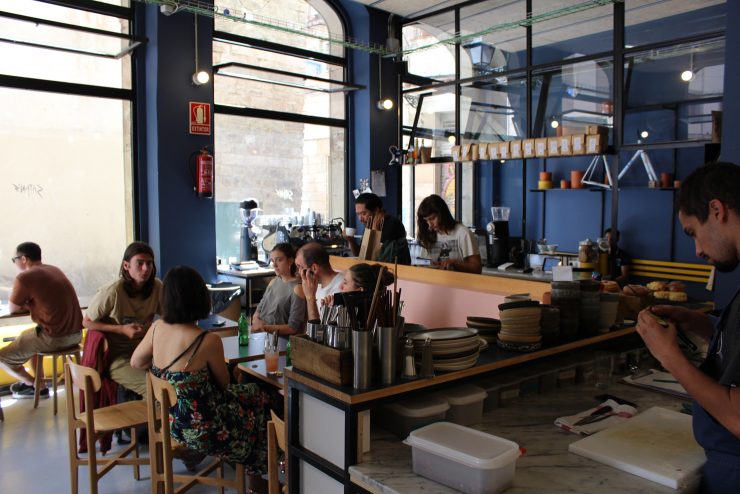
Despite the name, owner Marcos Bartolomé assures me that he is fine with Jesus. “I had some very concerned, well-meaning Christians from the US come to visit me once,” he tells me. He also confirms that he does indeed like babies, but enforces a strict no stroller rule at Satan’s, because of the way they congest the movement in his shop.
Despite a series of these type of modern, no-nonsense coffee shop rules (no syrup, no decaf, no special milk, no Wi-Fi), which hang on the wall, setting the tone for arriving customers, Satan’s has become a popular and successful coffee destination for locals and tourists alike.
Indeed, the quality of the coffee, which is roasted locally in small batches by Satan’s local roasting partner Right Side Coffee, will probably make you forget any momentary discomfort. Bartolomé, who comes from a well-established coffee roasting family in Spain’s La Rioja region, has a purist’s approach to coffee that has defined Satan’s since 2012, when Bartolomé’s original takeaway corner opened in the El Raval neighborhood.
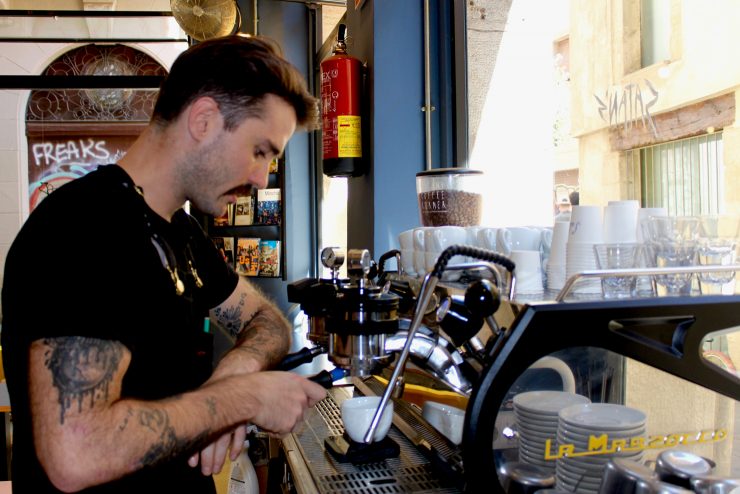
Nowadays, there’s plenty of space to sit down and enjoy a batch filter brew, V60, Kalita, or espresso from the La Marzocco Linea PB, and pair it with some healthy food (or even a Bloody Mary) in the light-filled modern shop located just behind the cathedral in the Gothic Quarter. In addition, Satan’s expanded last year to add a second location at Casa Bonay, one of Barcelona’s most beautiful boutique hotels in the Eixample neighborhood.
Nømad Coffee
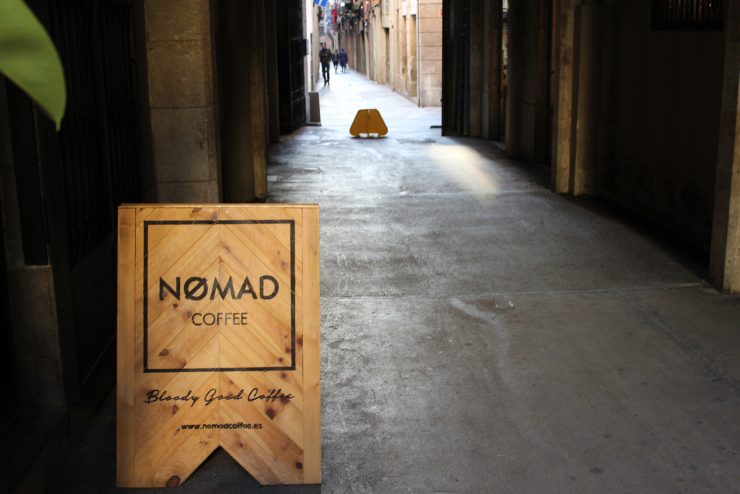
The story of specialty coffee’s arrival in Barcelona can’t be told without Nømad Coffee, which was started by Barcelona native Jordi Mestre in 2014. After several years at Nude Espresso in London, Mestre had become a talented barista, roaster, and even had operated a mobile coffee operation—thus the Nømad name—before returning to Barcelona.
When the former National Barista Champion came home, he had hopes of transforming Barcelona’s coffee scene, and to some extent he already has. In just two years, the Nømad brand has achieved an impressive reputation for its strict emphasis on quality. Nømad is another cafe where you are not going to find special milk, decaf, or even sugar, but this doesn’t bother their loyal following of customers. In addition to their three locations, you will now find Nømad coffee served in restaurants across the city, as well as exported throughout Spain and Europe.
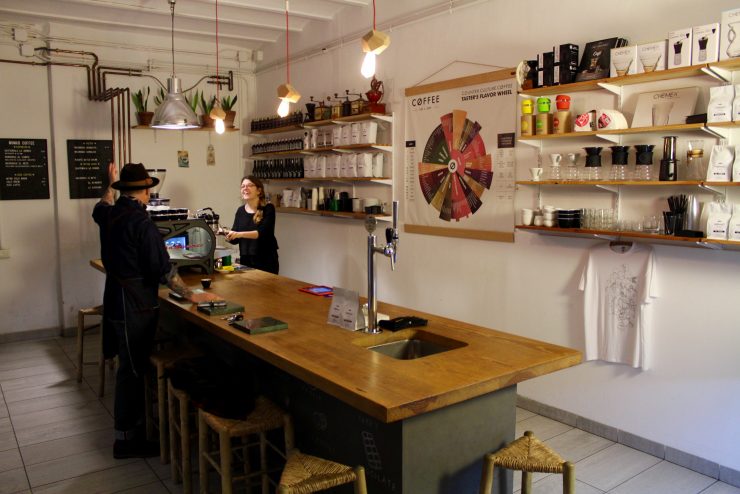
Nømad’s landmark location is its Coffee Lab located in the Passatge de Sert, an out of the way passageway between the Born neighborhood and Plaça de Catalunya. Their roastery in Poblenou opened in 2015 and, as well as being a roastery, holds regular training courses for those wanting to improve their coffee knowledge. Their newest store, called Every Day, opened late last year near La Rambla in the rapidly gentrifying El Raval neighborhood.
The communal table at Nømad Every Day is the perfect place to sit and enjoy your hot coffee or signature cold brew, and while the other two locations have great energy, they’re not as well-suited for settling in for a long stay. Pick up a Barcelona specialty guide and map from one of the cafes on this list—Nømad’s Born and El Raval locations can be difficult to find, but absolutely worth the effort.
SlowMov
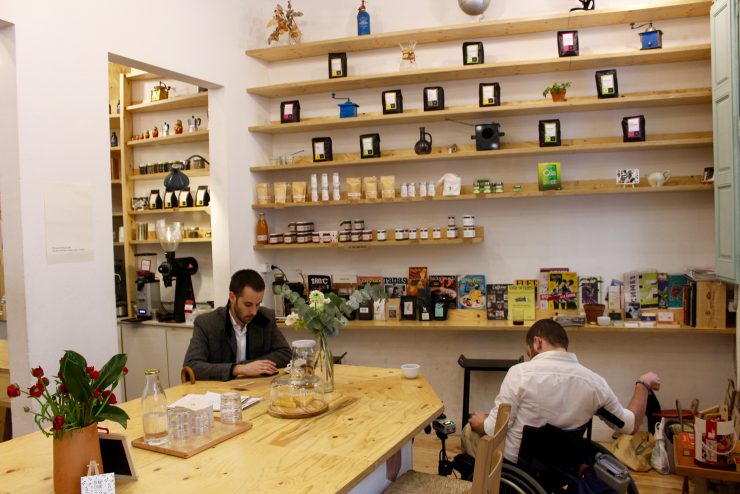
SlowMov is a charming space in the Gràcia neighborhood that is both a coffee roaster and a platform for connecting consumers with local and global producers. Inspired by the Slow Food movement, which focuses on locally grown, fresh produce that respects natural ecosystems, SlowMov does a compelling job of connecting consumers with the farmers who grow their coffee.
The store, which was started in 2015 by Carmen Callizo and Francois Justet, has strong ties to Coutume Café in Paris, where Callizo previously worked, and through whom they continue to source coffees in small lots directly from the farms Coutume visits. The coffee is then brought to Barcelona, where it is roasted on SlowMov’s Giesen W6.
“The coffee revolution is happening on the farms,” Justet tells me, as we sit in their simple, bright, minimalist showroom. “Traceability is the only way for producers to progress, show quality, and become more and more sustainable.”
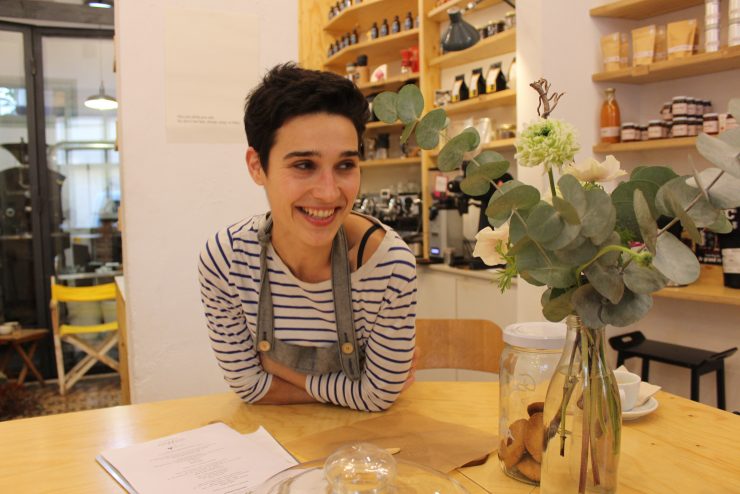
Indeed, traceability and ecologically sound products are the common threads between the shop’s specialty coffee and other local products. SlowMov has a strong social component, working with the Imperfect Program, which reduces food waste through promoting consumption of “ugly” foods, and by organizing a local colmena platform, which is like a producers’ cooperative, but with less commitment required.
In addition to coffee, SlowMov serves pastries with local, ecological ingredients from Luna Limón and other local pastry shops, as well as sundries like jam, olive oil, juice, fruits, vegetables, wine, and craft beer.
Hidden Café
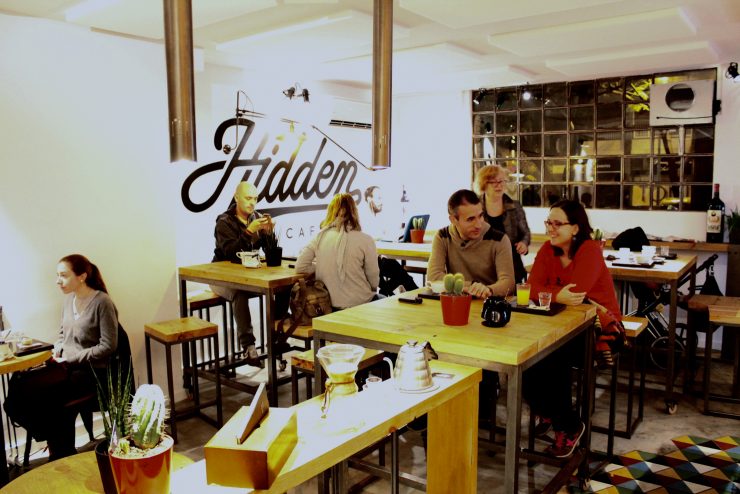
Hidden Café stays true to its name and is secreted off the beaten tourist path in Les Corts, an undiscovered gem of a neighborhood not far from Barcelona’s main Sants train station and the Camp Nou soccer stadium. At Hidden, they pride themselves in doing things a little differently; in addition to their own roasts, you will find well-respected international roasters such as Denmark’s La Cabra Coffee Roasters or France’s Belleville Brûlerie, prepared on a giant Slayer machine.
One feature that makes Hidden unique amongst Barcelona coffee venues is the winning atmosphere they’ve managed to create that pulls you in with great coffee, great music, and a fresh, bright locale that makes you want to take a seat amongst the cacti and industrial décor and stay for a few hours.
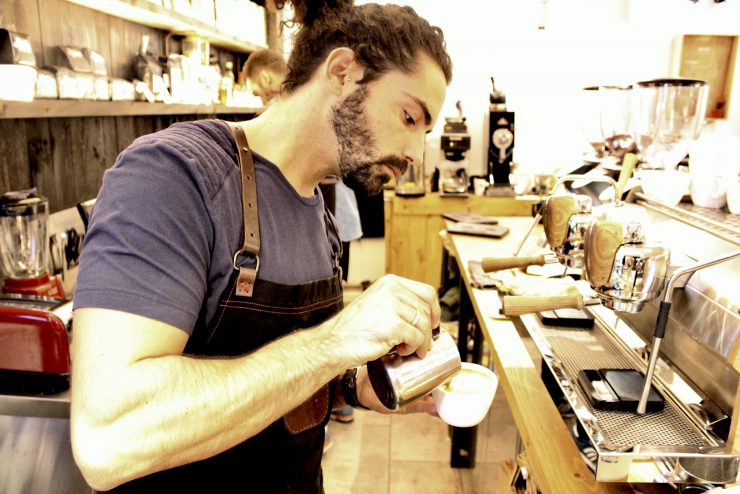
Carlos Moral Guerrero, one of the owners, (who loves coffee so much he has the coffee supply chain tattooed on his left arm) explains that they like to let the coffee take center stage. The unassuming location is intentional, as is Hidden’s low-profile marketing strategy, because he prefers to highlight coffee quality rather than be overshadowed by a brand. “Our mission is to diffuse the coffee culture to the public—not to promote ourselves.”
Like many of the stores on this list, Guerrero came to Hidden with a lifetime of experience in coffee (his family owns one of Spain’s largest green coffee traders) as well as deep experience working as a trainer for SCA and experience spending time at origin in Nicaragua, Honduras, and Ethiopia. Continuing the mission of educating the coffee public, Hidden hosts weekly catas or “tastings” and other events such as barista training sessions.
Hidden’s menu includes a wide variety of pour-over and espresso-based options, but if you’re over-caffeinated, try their matcha latte, with matcha which Guerrero’s partner Mateo González sources directly from Japan.
Onna Coffee
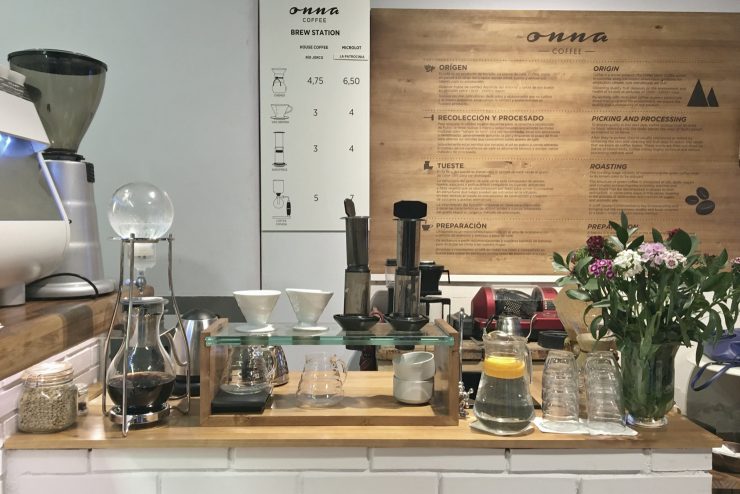
Onna Coffee (Onna meaning “woman” in Japanese) is a little slice of pura vida in the middle of Barcelona. The owner Anahi Paez, originally from Costa Rica, sources all of the coffee from her native country and roasts it herself at Onna’s nearby roastery.
After coming to Barcelona in 2007, Onna’s first shop was located in a co-working space in the post-industrial neighborhood of El Poblenou, but has recently found its new home in Gràcia, a quintessentially charming Barcelona neighborhood where you still feel like you are in Catalonia, away from the touristy masses.
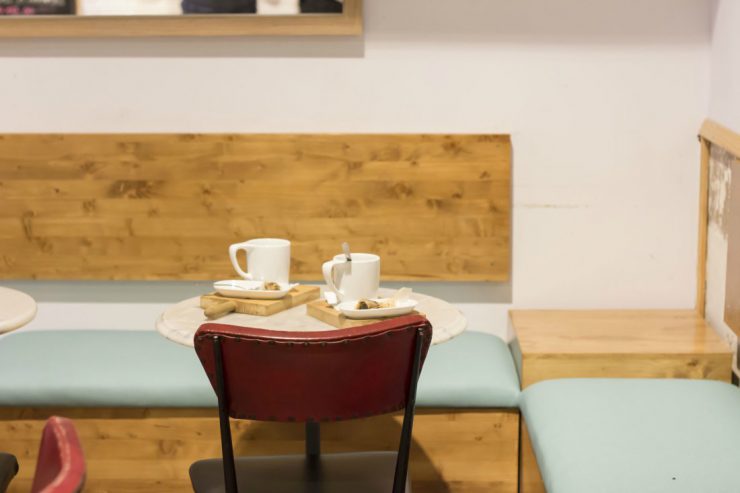
Paez tells me that there are those customers that come in every day, and it’s easy to see why. “Good coffee, craft care” is Onna’s motto, and it is seen in their attention to detail, friendly baristas, and even a guest book that sits on the coffee station. All of these add to Onna’s good energy and comfortable atmosphere, and as Paez says, “You are the first person they talk to in the morning—that’s a big responsibility.”
“I really want coffee to be perceived as something for everyone,” she continues. “It’s a very humble product, it’s simple, it’s very honest. It brings people together, it generates ideas, people come here to think.”
Lest you think that a cafe serving only Costa Rican coffee might get boring, the cafe prides itself on their many micro-lots and the diversity of their single-origin coffees. The friendly baristas will be more than happy to suggest a new drink for you, or give advice or demonstrations on home brewing at their well-equipped coffee station. The cafe serves a variety of espresso-based and filter brews, and while the milk and sugar options are greater than a few of the other cafes on this list, Paez cautions, “you won’t find decaf at Onna, because decaf doesn’t grow on plants.”
Black Remedy
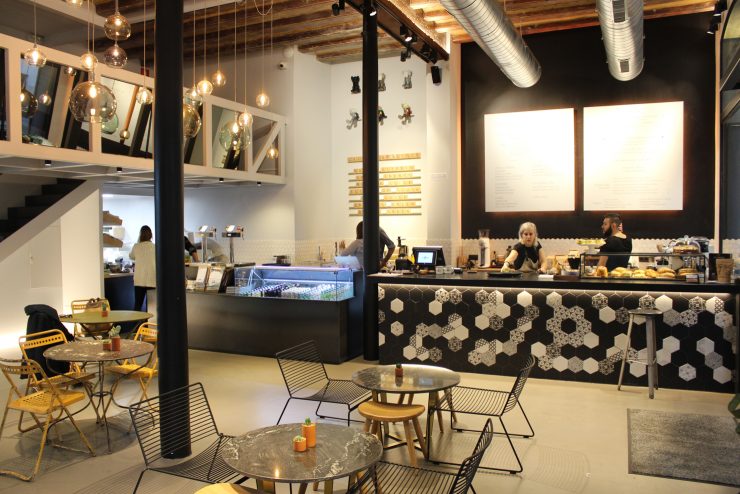
Black Remedy is something completely different in Barcelona. Somewhere between Second Wave and Third Wave, it feels like Barcelona meets Brooklyn meets Starbucks. With a convenient location in the Gothic area, excellent specialty coffee, and quality homemade food—this is a coffee shop with a business strategy.
The lounge-y music, atmosphere, and service are a good reason to check out Black Remedy if you are looking for something with a slightly more American feel. Along with all of these comforts also comes a slightly more corporate vibe, which is not surprising given that Black Remedy is owned by coffee equipment company Compak, whose main factory is located just outside of Barcelona.
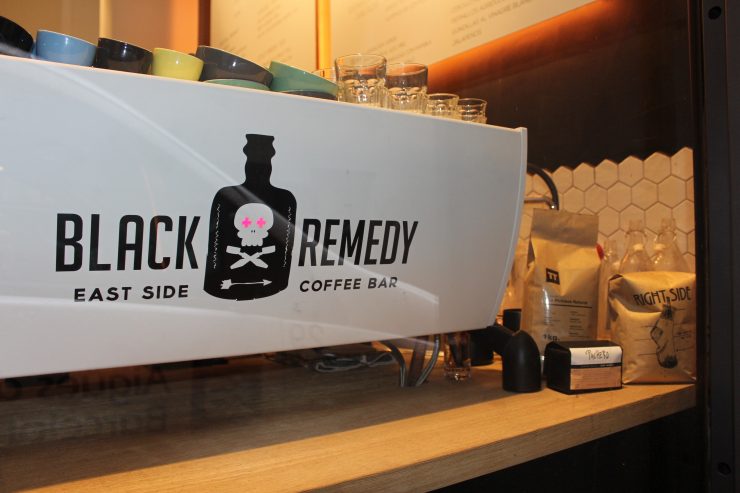
The coffee, however, is completely modern. Espresso drinks are made on a custom Slayer machine with beans from a variety of local roasters including Tusell Tostadores, a local Barcelona roaster who sources beans directly from El Salvador, as well as Right Side and Puchero Coffee Roasters, who are based in Vallodolid. Additionally, there are house-made, cold-pressed juices, sandwiches made with roasted meat that’s smoked daily, and a counter full of pastries. This makes Black Remedy an excellent option for a good brunch, which is not easy to come by in Barcelona.
The charm of the specialty coffee scene in Barcelona is that it is still small enough that those involved work in coffee because they love it—not because of a popular culture that embraces the specialty movement. The result is a delightful mix of stylish coffee shops, great educational opportunities, and a coffee culture that feels like it is just being born and has yet to be fully defined. Like everything else in the Catalan capital, specialty coffee is rapidly changing and will certainly develop into something with a distinct flavor and an independent character—purely itself, and purely Barcelona.
Sara Mason is founder of SHIFT Social Impact Solutions, and a freelance writer based in Barcelona. Read more Sara Mason on Sprudge.




